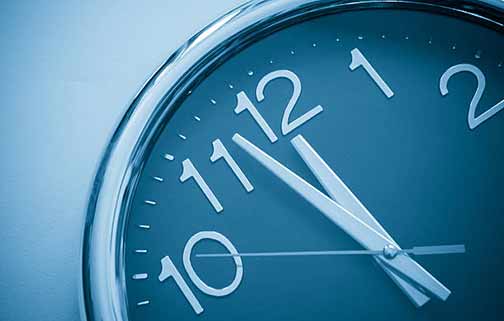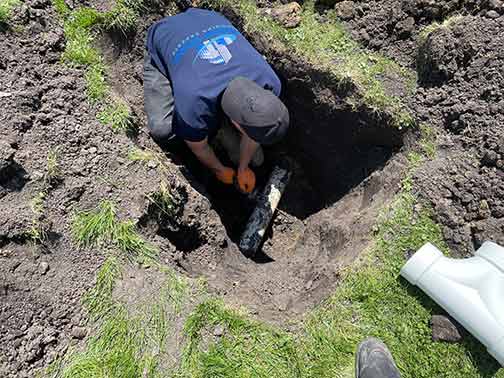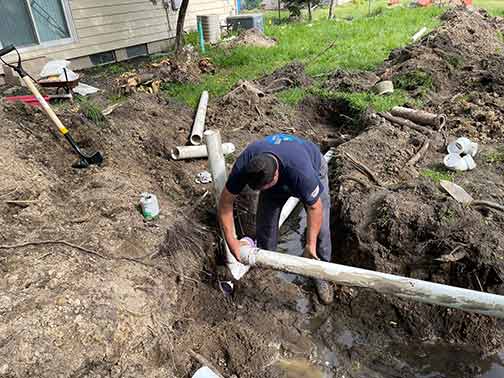
Chicago is a very large city known for its stunning architecture, diverse culture, and long streets. However, beneath the surface lies an vast network of sewer lines that ensure the proper disposal of waste and maintain the overall hygiene of the city. Over time, these sewer lines may deteriorate due to various factors, necessitating their replacement. If you find yourself in need of a sewer line replacement in Chicago, you might wonder how long such a process takes. Here we will get into the intricacies of replacing a sewer line in Chicago and provide you with valuable insights.
The Importance of Sewer Line Replacement
Sewer lines play a crucial role in maintaining the health and cleanliness of a city like Chicago. As they age, they become prone to various problems such as cracks, leaks, and blockages. These issues can lead to sewer backups and sewage spills, which pose a threat to public health and the environment. Replacing a sewer line is necessary when repairs are no longer viable or when the existing sewer line is beyond repair. By replacing a damaged sewer line, you ensure the integrity of the sewage system, prevent contamination, and maintain the overall quality of life in your community.
The Factors Affecting the Duration of a Sewer Line Replacement
Several factors come into play when determining the duration of a sewer line replacement project in Chicago. While it is challenging to provide an exact timeline due to the variations in each project, understanding these factors can give you a general idea of what to expect. Let’s explore them in more detail:
Length and Depth of the Sewer Line
The length and depth of the sewer line are key factors in determining the duration of the replacement project. Longer sewer lines with deeper trenches may require more time to excavate and install the new line. Additionally, if the sewer line extends under paved areas or structures, extra precautions and labor-intensive processes may be necessary, further prolonging the timeline.
Type of Sewer Line
The type of sewer line being replaced can also impact the project’s duration. Older sewer lines made of materials such as clay or cast iron may be more fragile and prone to damage. Replacing these lines requires additional care and time compared to modern PVC sewer lines.
Access and Site Conditions
The accessibility and condition of the site where the sewer line replacement takes place can significantly affect the project’s duration. If the replacement area is obstructed by trees, structures, or other underground utilities, it may require additional time and effort to clear the area and maneuver the necessary equipment.
Permits and Regulations
Obtaining the necessary permits and complying with local regulations is a crucial step in any sewer line replacement project. The time required to secure these permits and meet the necessary regulatory requirements can vary, depending on the specific guidelines of the city of Chicago.
Weather Conditions
Chicago’s weather can be unpredictable, and adverse weather conditions can impact the progress of a sewer line replacement project. Harsh winters, heavy rainfall, or extreme temperatures may require additional precautions and may cause delays. Contractors need to consider weather conditions to ensure the safety of their workers and the integrity of the project.
Complexity of the Project
The complexity of the sewer line replacement project can significantly impact its duration. If the existing sewer line has multiple bends or connections, the replacement process may take longer as each segment requires careful removal and installation.

Once the trench is prepared, the next step involves removing the damaged or old sewer line and replacing it with a new one.
The Process of Replacing a Sewer Line in Chicago
Now that we have explored the factors influencing the duration of a sewer line replacement, let’s delve into the typical process of replacing a sewer line in Chicago. While some variations may exist depending on the specific project, this general outline will provide you with a better understanding of the overall process.
Inspection and Assessment
The first step in any sewer line replacement project is a thorough camera inspection of the existing sewer line. This involves the use of specialized cameras to identify any cracks, leaks, or blockages, as well as to determine the overall condition of the sewer line.
Planning and Permitting
Once the inspection is complete, the next step involves planning the replacement project and obtaining the necessary permits and permissions from the city of Chicago. This includes preparing the project timeline, budgeting, and ensuring compliance with local regulations.
Excavation
Excavation is the process of digging up the existing sewer line, creating a trench for the placement of the new line. The length and depth of the trench depend on the factors mentioned earlier. The excavation process requires careful consideration to minimize disruptions to the surrounding area.
Removal and Replacement
Once the trench is prepared, the next step involves removing the damaged or old sewer line and replacing it with a new one. The new sewer line is carefully installed, ensuring proper alignment, connections, and slopes to facilitate the seamless flow of wastewater.
Backfilling and Compaction
After the new sewer line is in place, the trench is backfilled with soil or gravel. This ensures stability and prevents any potential damage to the newly installed line. The backfilled area is then compacted to restore the ground’s integrity.
Site Restoration
The final step in the sewer line replacement process involves site restoration. This includes repairing any areas affected by the excavation, such as driveways, sidewalks, or landscaping. The goal is to leave the site in a condition similar to its pre-construction state.
Replacing a sewer line in Chicago is a detailed and intricate process that requires careful planning, execution, and adherence to local regulations. While it is challenging to provide an exact timeline due to the various factors involved, understanding the process and the factors influencing the duration can help you better prepare for such a project.
If you find yourself in need of a sewer line replacement in Chicago, it is essential to speak with an experienced Chicago plumber who can guide you through the process and ensure a successful outcome. Remember, investing in the maintenance and replacement of sewer lines goes a long way in preserving the cleanliness and functionality of our beloved city.

